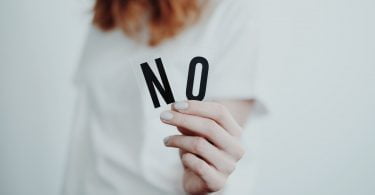“What the fuck! I’m not some pretty fucking helpless princess in distress, I’m pretty fucking powerful”, are the first few sentences in FCKH8’s recent campaign against sexism. Part of the shock factor of these words is the fact that they are shouted from the mouths of five young girls aged six to thirteen. The message and question that FCKH8 directs to its viewers is simple; is hearing little girls dressed as princesses and using the ‘f word’ in every sentence more shocking than the sexist way that society treats women?
The girls in the video don’t shy away from bombarding their audience with shocking statics regarding gender inequality, accompanied by copious “fucks” and “fuckings”. From the fact that one in five women will be sexually assaulted by a man, to women being paid 22 per cent less than men for the same job, FCKH8 aims to address some of the largest issues for women in today’s society, and in a new, thought provoking manner.
FCKH8 revolutionises gender equality education
At the start of the video one of the girl’s calls on specifically grownups to “listen up”. However, while the mouthpiece of this campaign may be five little girls, children of a similar age are not their target audience. FCKH8’s video may get more adults engaged with sexism and gender inequality (which is clearly a good thing), but as well as using children to educate adults in a revolutionary way, maybe we should start focusing on using adults to educate children on these issues in an equally revolutionary way. Children simply don’t get the education on women’s rights early enough or in a thorough enough manner. Until I went to university I didn’t identify as a feminist or engage with women’s rights, this wasn’t because I chose not to; it was because until that point in my life I hadn’t been educated on these topics.
Children need to be educated on feminism from a young age
Like many of my peers, I learnt about the suffragettes and the history of the feminist movement in school but I wasn’t educated on what feminism could mean for me in a modern context within any lesson or by any teacher. If we don’t teach young children about these issues, how can we expect them all to grow up fully engaged and in support of women’s rights? FCKH8’s shock factor comes not merely from the language that these children use, but from the fact that hearing young girls talk about their rights as women is so rare. Children aren’t being educated on these huge inequalities that women face in society, so it’s no wonder that we never hear young girls talking about the sexism they face. We need to find a means of engaging with children on these issues in a manner that shocks and excites them in the same way that FCKH8’s campaign has shocked and excited its grownup target audience.
I’m all for campaign’s like FCKH8’s. Despite controversy over the language used, anything that gets people talking and engaging with women’s rights is in my opinion a good thing. However, these types of campaigns aiming to educate adults on sexism and inequality would be far less necessary if we started educating children sufficiently on these issues. After all, if young people grow up immersed in knowledge regarding gender inequality then they will take this knowledge into their adult lives. FCKH8’s message is a positive one, and “grownups” should indeed “listen up”, but let’s get children to listen up also. If we don’t educate young boys and girls then we can’t expect them to grow up to be any different to the adults that need to “listen up” to FCKH8’s campaign today.
What are your thoughts on FCKH8’s recent campaign? Should young children be involved in adult issues? Should gender equality be emphasised at a younger age? Tell us your thoughts below.








